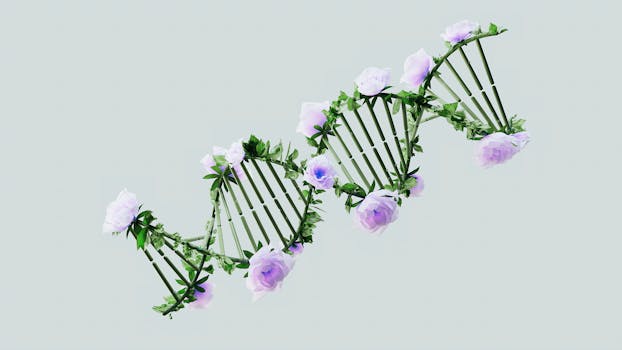
The Role of Genetics in Human Health and Disease
The role of genetics in human health and disease is a rapidly evolving field that has revolutionized our understanding of the human body. Genetics, the study of heredity and variation, plays a crucial role in determining our susceptibility to certain diseases and our overall health. In this article, we will delve into the world of genetics and explore its significance in human health and disease.
Introduction to Genetics

Genetics is the study of heredity and variation. It involves the study of genes, which are the basic units of heredity, and how they are transmitted from one generation to the next. Genes are made up of DNA (deoxyribonucleic acid), a molecule that contains the instructions for the development and function of an organism. The study of genetics helps us understand how genes interact with each other and with the environment to shape our characteristics and determine our susceptibility to certain diseases.
Genetic Disorders

Genetic disorders are conditions caused by abnormalities in an individual’s DNA. These abnormalities can be inherited from one’s parents or can occur spontaneously due to environmental factors. Some common genetic disorders include sickle cell anemia, cystic fibrosis, and Down syndrome. Genetic disorders can be diagnosed through various tests, including genetic testing, and can be managed through a combination of medication, therapy, and lifestyle changes.
Genetic Research and Its Applications

Advances in genetic research have transformed our understanding of the human body and have led to the development of new treatments and therapies. Genetic research has also enabled us to identify genetic markers for certain diseases, allowing for early diagnosis and prevention. Some of the applications of genetic research include genetic testing, gene therapy, and regenerative medicine. Genetic testing involves analyzing an individual’s DNA to identify genetic mutations or variations that may increase the risk of certain diseases. Gene therapy involves using genes to treat or prevent diseases, while regenerative medicine involves using genes to repair or replace damaged tissues.
Conclusion

In conclusion, the role of genetics in human health and disease is a complex and rapidly evolving field. Genetics plays a crucial role in determining our susceptibility to certain diseases and our overall health. Advances in genetic research have transformed our understanding of the human body and have led to the development of new treatments and therapies. As we continue to explore the world of genetics, we may uncover new secrets about the human body and develop new ways to prevent and treat diseases.






